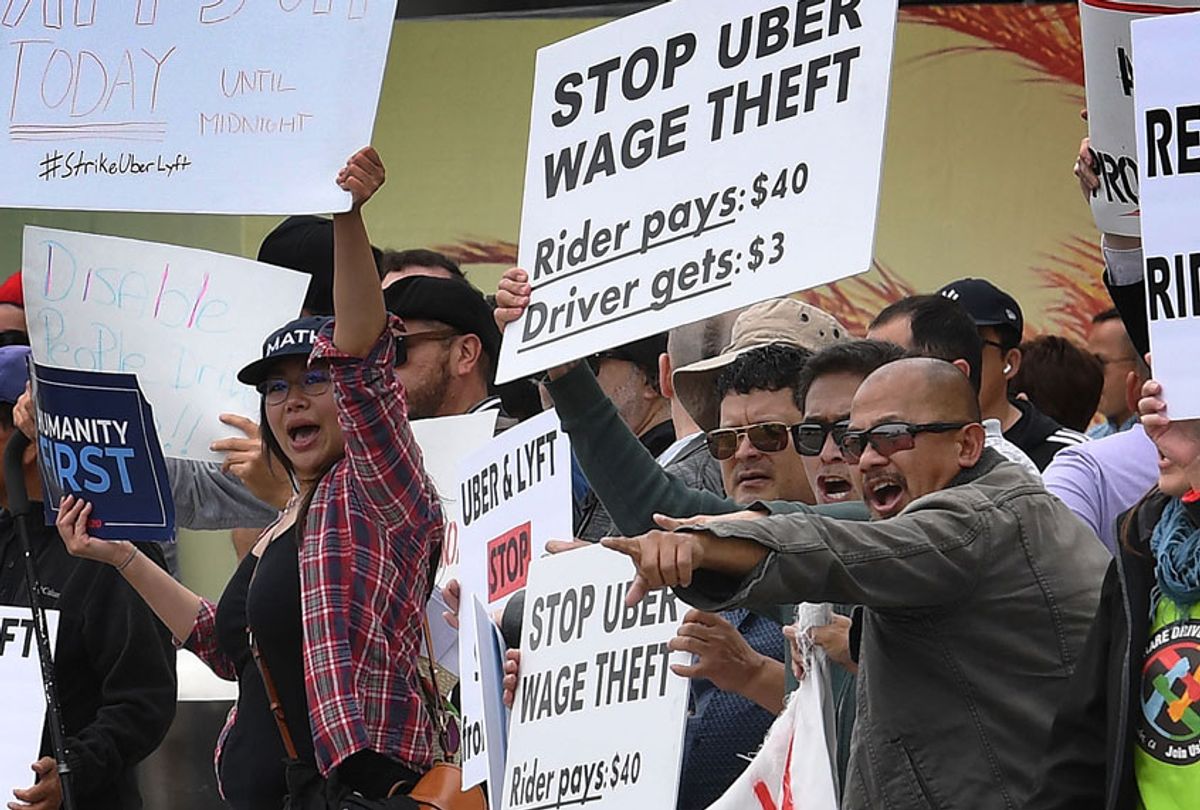Convenience often comes with consequences. That is one lesson to be learned by this decade’s rise of the gig economy.
From using Uber and Lyft to get somewhere quickly, to Caviar and Postmates to get carryout from restaurants more efficiently, big tech has enabled consumers to get whatever they want by the touch of an app — but at the expense of an overworked, underpaid, and growing workforce. This is why legislators in states like California are taking matters into their own hands. Enter: AB 5, a California state bill that would classify gig workers as employees. While the bill is extensive, and only pertains to the state of California, some experts believe its repercussions will extend across the country.
“What happens in California will be closely watched around the country," Ken Jacobs, the chair UC Berkeley Center for Labor Research and Education Institute for Research on Labor and Employment told Salon. “As we have seen with paid sick leave, $15 minimum wages, and fair scheduling, policies that start in one state or locality often spread elsewhere.”
This week the bill expands on and codifies expands a 2018 California Supreme Court decision known as Dynamex, and will make it harder for companies to claim that workers are independent contractors. The determination, according to the bill, an “ABC” test would ascertain whether a worker is an employee rather than a contractor. Under the test, as it stands, it is likely that gig economy workers — who are currently classified as independent contractors — would be considered employees.
This week, the bill passed through California’s Senate’s Labor, Public Employment and Retirement Committee, 4-1, at a hearing on Wednesday. However both supporters and opponents agree it needs more revisions, but the next step would be for it to pass the Senate Appropriations Committee. If passed there, it would head to the full Senate floor vote by the end of the summer or fall.
Jacobs told Salon it can have a nationwide impact not only because it will set a precedent, but because a majority of gig economy companies are in California — like Uber, Lyft and Postmates.
“California makes up a significant part of the market for many of the gig economy companies,” Jacobs said. “It is a significant share, and it will have a large effect on their overall business model and this is in the context in New York City, and other important markets, that have put higher labor standards in place.”
Jacobs was referring to other states and cities that have tried to regulate the gig economy. For example, New York City imposed a mandatory minimum wage and a cap on ride-hail drivers.
The rise in policy that could potentially decimate the gig economy is not sitting well with California tech giants. In an op-ed in the San Francisco Chronicle, Uber CEO Dara Khosrowshahi and Lyft co-founders Logan Green and John Zimmer argued most drivers “prefer freedom and flexibility to the forced scheduled and rigid hourly shifts of traditional employment.”
Jacobs said this argument lacks steam.
“Their model is based on offloading as much risk to the drivers as possible while paying at the lowest possible rate,” Jacobs said. “There is no reason there cannot be flexibility in an employee model, this is a choice the company makes and ultimately the best place to make the decision on trade-offs between security and flexibility is through a union and workers need both higher labor standards and a union to have a voice in how policies are implemented.”
Jacobs said pushback could prevent AB 5 from living up to its potential considering the big tech companies have “very strong labor operations.” Whatever the outcome is, the rest of the country will surely take notice.
“I think once California sets high standards, others will look at what California has done very closely,” he said.



Shares